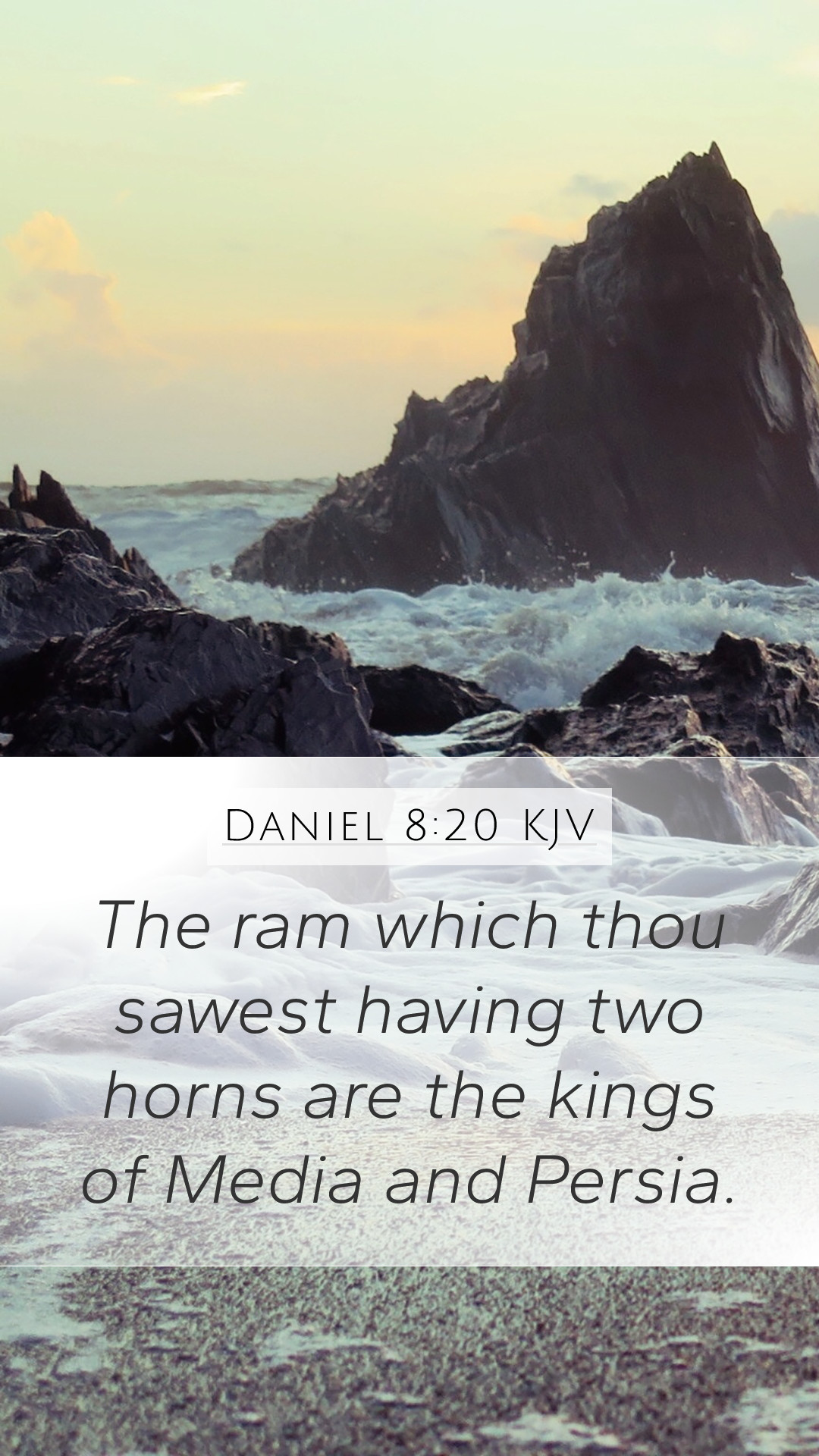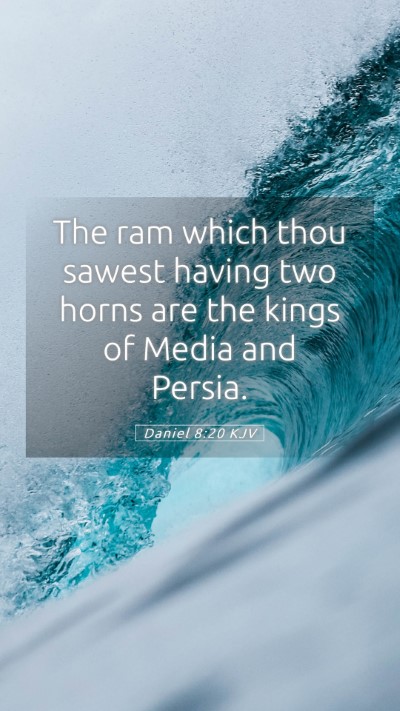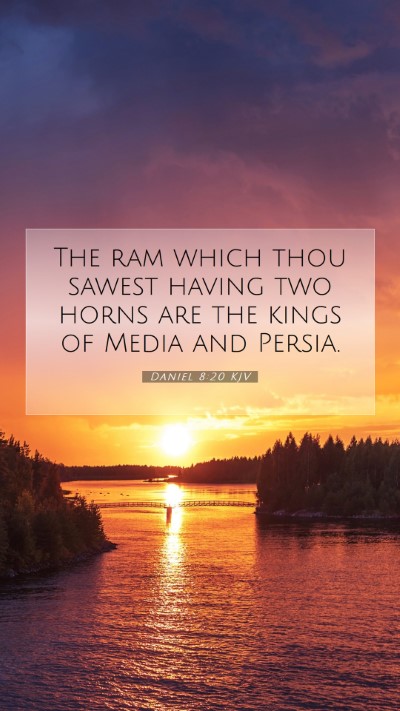Bible Verse Commentary on Daniel 8:20
Daniel 8:20: "The ram which thou sawest having two horns are the kings of Media and Persia."
Understanding the Context
The book of Daniel is filled with visions and prophecies that serve as significant biblical exegesis. Daniel 8 depicts a vision that presents various kingdoms and their symbolism through animal imagery. The ram with two horns specifically represents the Medo-Persian Empire, a significant power in ancient history.
Insights from Public Domain Commentaries
Matthew Henry's Commentary
Matthew Henry highlights that the two horns of the ram symbolize the dual nature and strength of the Medo-Persian kings. He reflects on how the division between the Media and Persia shaped the political landscape. The horns, indicating power and authority, reveal that the Persian aspect becomes more pronounced as history unfolds.
Albert Barnes' Notes
Albert Barnes points out that the imagery of the ram relates to the dominant empires during Daniel's time. His interpretation leans on the historical context, reminding readers that one horn being higher than the other foretells the rise of Persia over Media. Barnes emphasizes the prophetic nature of Daniel's visions, reflecting how they were fulfilled in subsequent historical events.
Adam Clarke's Commentary
Adam Clarke expands on the details of the ram's significance, noting that the two horns represent the kings of both Media and Persia but with a focus on Persia's supremacy. He elaborates on the meaning of this prophetic symbol, providing rich historical context that illustrates how these kingdoms affected the Jewish people and shaped events from captivity to restoration.
Key Themes and Lessons
- The Sovereignty of God: The verse emphasizes that God orchestrates the rise and fall of nations. Understanding biblical prophecy reassures believers that divine authority governs historical events.
- Interpreting Symbols: The significance of the ram with two horns teaches valuable lessons in interpreting biblical symbols. Such interpretations are crucial for a deeper understanding of biblical texts.
- The Role of History: Daniel’s visions remind readers that understanding historical context and the fulfillment of prophecy is vital for meaningful Bible study and insight.
Application in Daily Life
In applying the meaning of Bible verses to everyday life, Daniel 8:20 can encourage believers to trust in God's plan amidst the chaos of global events. It reinforces the idea that God’s providence governs history and provides comfort during uncertain times.
Cross References
- Isaiah 45:1 - Discusses God's anointing of Cyrus, a king of Persia.
- Daniel 7:5 - The bear representing Medo-Persia.
- Daniel 2:39 - The prophecy about the Medo-Persian kingdom after Babylon.
- Ezra 1:1-4 - The role of Persian kings in the returning of the Jewish people to Jerusalem.
Enhancing Your Bible Study
If you're involved in Bible study groups or prefer to engage in online Bible study, understanding Scripture like Daniel 8:20 allows for meaningful discussions and insights into the nature of God's kingdom and the unfolding of human history. Utilize Bible study tools and resources to deepen your analysis and to connect this verse's themes with broader biblical narratives.
Conclusion
To grasp the meaning of Bible verses such as Daniel 8:20, one must consider the historical context, divine prophecy, and the overarching sovereignty of God. Such reflections not only enhance individual understanding but also enrich the collective experiences of Bible study lessons and discussions.


